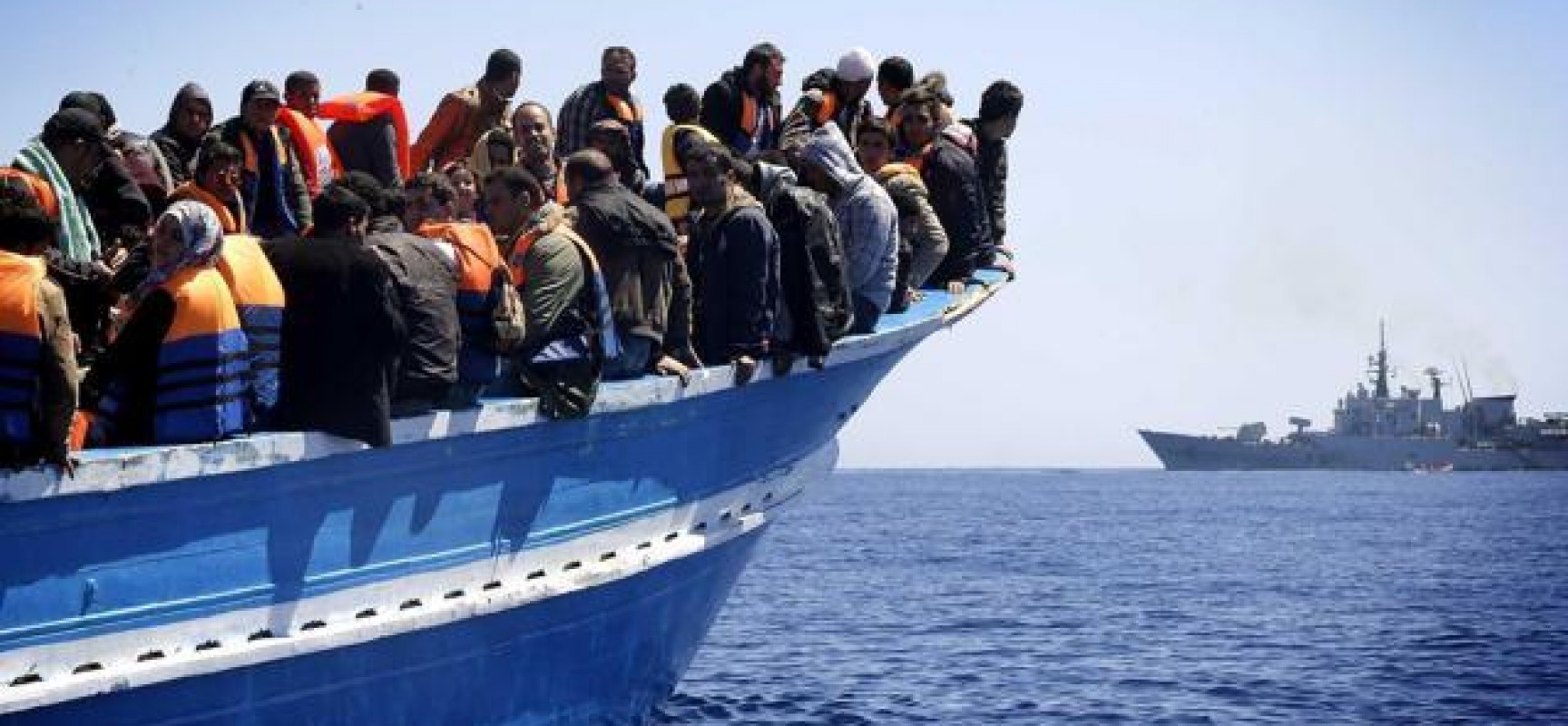The Italian mediatic spotlight is focussing on matters of migration again, following a rise in migrant landings and coronavirus-related health concerns. More than 12,300 have made the trip so far this year, mostly departing from Libya and Tunisia – where interior minister Luciana Lamorgese has recently gone to discuss cooperation and the local stemming of migration with the Tunisian government.
Data shows that at least 9,500 of the migrants who have arrived have done so by using smaller vessels than the massive ships we’ve been used to seeing in past years. This makes the detection and managing of their passengers far harder, as these vessels usually escape coast guard radars and can easily land on most coastlines, where the migrants may abandon them and travel across the country.
It is quite normal for migrant fluxes to spike during the summer, as the warmer weather and the calmer sea increase the chances of success for those attempting the voyage. In fact, the overall numbers have been declining since the 2015-2016 peak. However, the Covid-19 pandemic has added the health variable to the matter, which until now had been steadily waning from the public discourse.
“It’s hard enough to manage migratory fluxes of this entity in normal times, but considering the issues relative to the diffusion of Covid-19, the situation really is very complex,” said Ms. Lamorgese to the Italian daily Corriere della Sera. She also noted how the grave economic crisis in Tunisia is contributing to “exceptional fluxes of migrant landings” and vowed to aid Tunisian authorities through the training and equipping of police forces, much like Italy does in Libya, too.
Migrant centres are being heavily overburdened, with the main hotspot in the island of Lampedusa hosting 872 refugees despite its capacity to hold only 95. But that’s not the only issue: roughly one hundred migrants have escaped from the centre in Porto Empedocle, Sicily, defying the mandatory quarantine and posing a hardly-controllable health threat. A similar episode happened in Caltanissetta, also in Sicily, with 184 fleeings.
Following these incidents, Ms. Lamorgese assured the public that most of the fugitives have been identified and that the sanitary situation is under control; she has begun transferring hundreds of migrants to other centres across the nation in a bid to ease the pressure experienced by the main arrival ports in the South. The interior minister also vowed to send over hundreds of military personnel to Sicily and institute a quarantine ship, respectively to secure and unload the migrant centres.
“We’ve got ourselves a public health problem if who is meant to remain in [a reception centre] escapes,” declared foreign minister and leader of the governing Five Star Movement Luigi Di Maio. “The EU must also take steps and restart the redistributions [between member states] that have stopped during the pandemic, reactivating the Malta accord underwritten last September.”
Nicola Zingaretti, who leads the co-ruling Democratic Party, stressed that the government must tackle the migration-plus-Covid scenario “with the utmost attention”. Other members of the Italian left, including senior Democrat Matteo Orfini, have expressed discontent for the government’s handling of migration policies, including its recent refinancing of Lybian coast guard who bears some responsibility for an ongoing humanitarian crisis.
As to confirm the critics’ worst fears, yesterday three Sudanese migrants were killed and other four were injured by the Libyan coast guard. The incident occurred as they were being repatriated after having been intercepted at sea. “This incident underlines starkly that Libya is not a safe port for disembarkation,” declared Vincent Cochetel, UNHCR’s Special Envoy for the Central Mediterranean. The Italian government’s refinancing of Libyan authorities was founded upon the recognition of Libya as a safe port.
“The [Ministry of the Interior] only now realises that it must stop the fluxes from Tunisia, with hundreds of immigrants fleeing from reception centres and absolute silence on the redistribution of migrants abroad,” said the leader of the opposition Matteo Salvini, whom had been at the forefront of a crackdown on migration and migrant rescue operations during his tenure as interior minister (and whose anti-migrant security laws are still active, despite the left’s promise to reform them).
Today, news broke of eight infected migrants that have been transferred to a small, COVID-free town in Abruzzo, after testing negative in Sicily. Residents have immediately asked the authorities to suspend migrant reception until the pandemic is over, and Mr. Salvini’s party, the League, is organising a protest against the government’s handling of immigration to be held on site.
These events pile on top of previous criticism from the right-wing coalition, led by Mr. Salvini, concerning infected foreigners being allowed into the country (an estimated 600 as of July 11th). Reports have highlighted that, for instance, citizens of Bangladesh can acquire cheap sanitary certifications purporting their carrier’s negativity to the Covid-19 infections – and the right-wing sphere have begun banking on this.
Overall, members of the anti-migrant League (and some of its allies) have taken to linking illegal immigration to coronavirus infections, despite being those who are most critical of security measures such as face masks.
Regardless, the public is heeding the right-wing parties’ call. As the migration crisis has been central to Italian politics in the past years, chances are that this summer’s events will reinforce the right’s position at the regional elections held in Autumn – unless the current government, whose shakiness is being somewhat eased by recent successes, can get on top of the divisive immigration policies and the public discourse around it.








